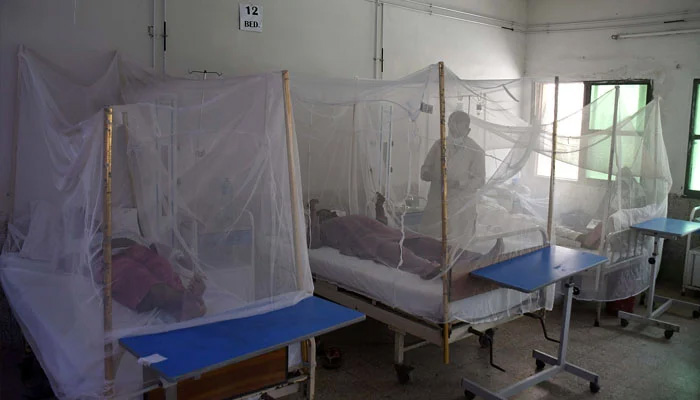Dengue outbreak may hit parts of country following rains, warns NIH
Advisory urges authorities and public to take immediate preventive measures to curb mosquito breeding
ISLAMABAD: The National Institute of Health (NIH) issued a warning that Punjab, Balochistan, and northern Pakistan are at risk of a dengue outbreak following recent rainfall across the country.
The advisory urges authorities and the public to take immediate preventive measures to curb mosquito breeding.
According to the NIH advisory, dengue thrives in warm and humid conditions, making post-rainfall periods a high-risk for virus transmission.
The institute warned that Pakistan recorded 28,427 dengue cases in 2024, a significant increase from the previous year, and further infections could rise if precautions are not implemented.
Dengue symptoms include high fever, severe headaches, joint and muscle pain, skin rashes, and eye pain.
The NIH has advised people to use only paracetamol for fever management while avoiding aspirin and NSAIDs, as they increase the risk of bleeding.
Severe dengue cases, particularly when platelet counts drop below 10,000, require immediate hospitalisation, the advisory added.
The NIH has urged people to take strict mosquito control measures, including:
- Using mosquito nets and repellents
- Wearing full-sleeved clothing
- Eliminating stagnant water to prevent mosquito breeding
Hospitals have also been directed to enhance laboratory facilities for dengue diagnosis. The NIH has stressed the need for public cooperation and timely medical consultation to prevent severe cases and fatalities.
-
Imagine Dragons star, Dan Reynolds recalls 'frustrating' diagnosis
-
Selma Blair explains why Multiple Sclerosis 'isn't so scary'
-
Can brain stimulation make people kinder & less selfish? New study offers hope
-
Mariah Carey details 'hardest' bipolar disorder experience
-
Pink reveals health routine for asthma management
-
Gigi Hadid talks about 'relieving tension' amid having Hashimoto's disease
-
Selena Gomez explains why she thought lupus was 'life-or-death'
-
How Kim Kardashian made her psoriasis ‘almost’ disappear












